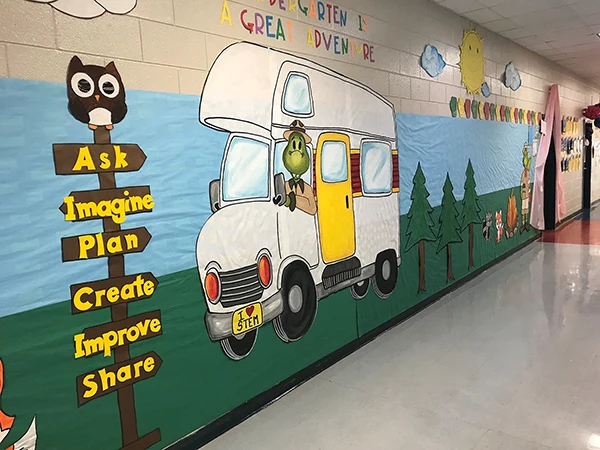
Each school's journey to STEM or STEAM certification is different. However, because the shift from a traditional pedagogy to a STEM/STEAM pedagogy takes time, the process usually takes 3-5 years. The certification process is described in the Interactive STEM/STEAM Process and requirements can be found in the Continuum.
Whole-school or program certification depends on grade level. Elementary certifications are whole school only. Middle schools can be certified whole school or program. High schools can be certified through CTAE pathways.
The cornerstone for Georgia's certification process is the application of the Georgia standards. All project-based learning and day to day interdisciplinary teaching must align with grade level standards.
Schools are supported through the coaching and guidance of the STEM/STEAM Georgia staff. This may include tailored professional development opportunities, invitation to serve on certification visits, and artifact reviews.
Initial STEM/STEAM certifications are valid for 5 years.
You cannot engage in STEM/STEAM pedagogy without including CTAE. The acquisition of knowledge through content utilizing 21st century employability skills are intertwined. Students engage in hands-on experiences with community partners, allowing them to explore various careers. High schools seeking certification align with specific CTAE pathways. Elementary and middle schools engage in CTAE practices such as engineering and computer science while actively engaging in the employability skills of collaboration, critical thinking, creativity, and communication.
To learn more about grant opportunities for Georgia schools: https://plo.gadoe.org/Pages/Competitive-Grants.aspx